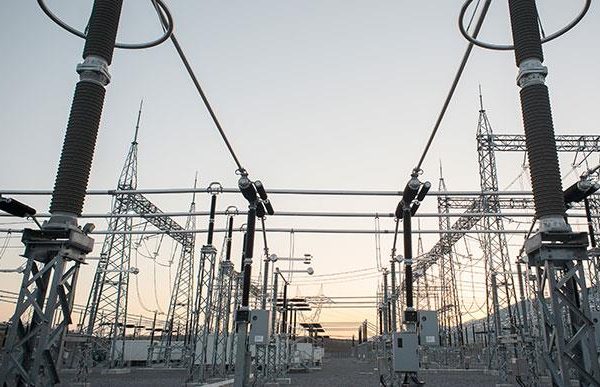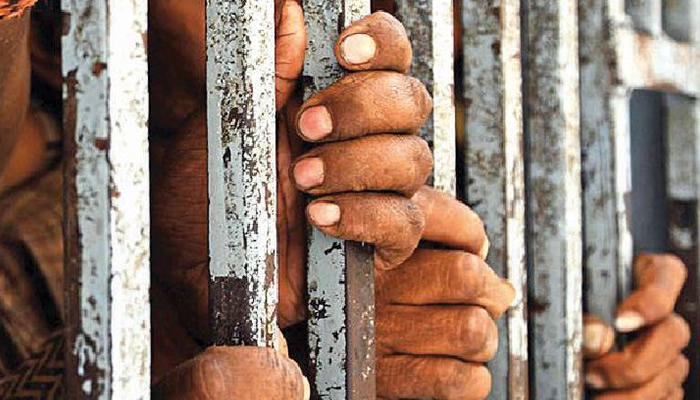Ukrainian agriculture minister under suspicion of orchestrating land-grab scheme— Report
Mykola Solskyi, the Ukrainian agriculture minister, is suspected of being involved in the illegal acquisition of millions of euros worth of state land before he joined the government.
The country’s anti-corruption agency, NABU, leveled the allegations on Tuesday without directly naming Solskyi.
The agency said “a current minister” was being treated as a suspect in an investigation into the illegal acquisition of state-owned land worth 291 million hryvnias (€6.9 million) and attempting to seize land worth another 190 million hryvnias (€4.5 million).
News outlet RBC-Ukraine cited law enforcement naming Solskyi as the suspect.
According to NABU, Solskyi led a group that was involved in the misappropriation of farmland in the northeastern Sumy region between 2017 and 2021 before he became part of the government cabinet.
Under the guise of a government agricultural land use program, that group allegedly destroyed documents affirming the rights of state-owned enterprises to the land, then transferred those rights to individuals associated with the group.
In a statement, Solskyi said he would cooperate with authorities and stressed that the activities under investigation predate his time in government and relate to his years as a lawyer.
“I guarantee maximum openness to establish the truth, but there is no need for this — all data is open to law enforcement, and the evidence and arguments of the parties are being considered by the courts,” he said.
NABU said that its intervention prevented the “criminal group” from acquiring an additional 3,300 hectares of land valued at nearly €4.5 million.
Solskyi and alleged accomplices have been placed under official suspicion, the agency added.
The 44-year-old, who owns several agricultural businesses and is one of the wealthiest Ukrainian officials, is the highest-ranking minister in President Volodymyr Zelenskyy’s government to be named as a suspect in a criminal case. Last year, NABU accused one of his deputies of participating in an embezzlement scheme involving the procurement of humanitarian aid.
Solskyi was elected to the Ukrainian parliament in 2019, and appointed agriculture minister in March 2022 shortly after Russia invaded the country.
In recent weeks, Ukrainian media reported that he had fallen out of favor with Zelenskyy and was being considered for dismissal.
UK’s Rwanda deportation bill passed, Rishi Sunak says ‘Nothing can stop us’
British Prime Minister Rishi Sunak on Tuesday reaffirmed his commitment to sending asylum seekers back to Rwanda soon after the country’s parliament passed the controversial Safety of Rwanda Bill, aimed at deterring migrants from making perilous journeys across the English Channel in small boats to Britain.
Welcoming the bill, Sunak said “nothing will stand in our way” of getting flights to Rwanda off the ground. He also described the passage of his “landmark” bill as a “fundamental change” in the handling of global migration.
Meanwhile, hours after the passage of the contentious bill, reports emerged of at least five migrant deaths in a Channel crossing attempt, though details remain unconfirmed by French authorities.
The influx of tens of thousands of migrants, many fleeing conflict and poverty in regions across Africa, the Middle East, and Asia, has prompted the British government to seek deportation measures.
Citing the risks to lives and the empowerment of criminal networks involved in smuggling, officials argue that action is imperative to stem the flow of arrivals.
“Our focus is to get flights off the ground, and I am clear that nothing will stand in our way of doing that and saving lives,” news agency Reuters quoted Rishi Sunak as saying.
Sunak on Monday that the first flights would take off in 10 to 12 weeks’ time. He also pointed out that an airfield was on standby, slots were booked for flights, 500 staff were ready to escort migrants and courts had been reserved to process appeals.
“No ifs, no buts. No foreign court can stop us. Illegal migrants will be deported from the UK. Runway is ready, aircraft are ready, 500 men trained and ready to push them out,” Sunak said.
Once the Safety of Rwanda Bill is passed into law — most likely to happen later this week — the British government will be free to deport asylum seekers. However, the move would also face several legal challenges as several charities, campaigners and unions argue that Rwanda does not offer a safe haven for refugees.
While the government prioritises halting the influx of migrants, critics believe that the plan to deport people to Rwanda instead of handling asylum seekers at home is ‘inhumane’.
Indian PM Modi accused of anti-Muslim hate speech. Here’s what to know
India’s main opposition party accused Prime Minister Narendra Modi of using hate speech after he called Muslims “infiltrators” — some of his most incendiary rhetoric about the minority faith, days after the country began its weekslong general election.
The remarks at a campaign rally Sunday drew fierce criticism that Modi was peddling anti-Muslim tropes. The Congress party filed a complaint Monday with the Election Commission of India, alleging he broke rules that bar candidates from engaging in any activity that aggravates religious tensions.
Critics of the prime minister — an avowed Hindu nationalist — say India’s tradition of diversity and secularism has come under attack since his Bharatiya Janata Party won power a decade ago. They accuse the party of fostering religious intolerance and sometimes even violence. The party denies the accusation and says its policies benefit all Indians.
At a rally in the state of Rajasthan, Modi said that when the Congress party was in government, “they said Muslims have the first right over the country’s resources.” If it returns to power, the party “will gather all your wealth and distribute it among those who have more children,” he said as the crowd applauded.
“They will distribute it among infiltrators,” he continued, saying, “Do you think your hard-earned money should be given to infiltrators?”
Mallikarjun Kharge, the Congress party’s president, described the prime minister’s comments as “hate speech” and party spokesperson Abhishek Manu Singhvi called them “deeply, deeply objectionable.”
The party sought action from the election commission, whose code of conduct forbids candidates from appealing “to caste or communal feelings” to secure votes. The first votes were cast Friday in the six-week election, which Modi and his Hindu nationalist BJP are expected to win, according to most surveys. The results come out on June 4.
Asaduddin Owaidi, a Muslim lawmaker and president of the All India Majlis-e-Ittehad-ul-Muslimeen party, said on Sunday: “Since 2002 till this day, the only Modi guarantee has been to abuse Muslims and get votes.”
While there have long been tensions between India’s majority Hindu community and Muslims, rights groups say that attacks against minorities have become more brazen under Modi.
Muslims have been lynched by Hindu mobs over allegations of eating beef or smuggling cows, an animal considered holy to Hindus. Muslim businesses have been boycotted, their homes and businesses have been bulldozed and places of worship set on fire. There have been open calls for their genocide.
Modi’s remarks referred to a 2006 statement by then-Prime Minister Manmohan Singh of the Congress party. Singh said that India’s lower castes, tribes, women and, “in particular the Muslim minority” deserved to share in the country’s development equally.
“They must have the first claim on resources,” Singh said. A day later, his office clarified that Singh was referring to all of the disadvantaged groups.
In its petition to the election commission, the Congress party said that Modi and the BJP have repeatedly used religion and religious symbols and sentiments in their election campaign with impunity. “These actions have been further bolstered by the commission’s inaction in penalizing the prime minister and the BJP for their blatant violations of electoral laws,” it said.
“In the history of India, no prime minister has lowered the dignity of his post as much as Modi has,” Kharge, Congress’ president, wrote on social media platform X.
The commission can issue warnings and suspend candidates for a certain amount of time over violations of the code of conduct.
“We decline comment,” a spokesperson for the commission told the Press Trust of India news agency on Monday.
In his speech, Modi also repeated a Hindu nationalist trope that Muslims were overtaking the Hindu population by having more children. Hindus make up 80% of India’s 1.4 billion people, while the country’s 200 million Muslims are 14%. Official data shows that fertility rates among Muslims have dropped the fastest among religious groups in recent decades, from 4.4 in 1992-93 to 2.3 between 2019-21, just higher than Hindus at 1.94.
Modi’s BJP has previously referred to Muslims as infiltrators and cast them as illegal migrants who crossed into India from Bangladesh and Pakistan. Several states run by the BJP have also made laws that restrict interfaith marriage, citing the unproven conspiracy theory of “love jihad,” which claims Muslim men use marriage to convert Hindu women.
Through it all, Modi has largely stayed silent, and critics say that has emboldened some of his most extreme supporters and enabled more hate speech against Muslims.
World must come together to tackle plastic pollution— Chair of UN talks
As UN talks begin to agree the first global treaty to reduce soaring plastic waste, the chair of the meetings has said he is confident countries will come together to secure an agreement.
Luis Vayas Valdivieso, the Ecuadorian ambassador to the UK, admitted it would be a challenge to overcome an impasse that has emerged between countries which produce plastic and others that have ambitions to tackle plastic pollution over its whole life. But Valdivieso, who will chair the UN intergovernmental negotiations on a future international legally binding instrument on plastic pollution in Ottawa, Canada, this week, said: “We have to face those challenges and work with them. Compromise is an important word that we need to take into account.
“This is a negotiation, there are regions and countries with a specific position that we understand. We know plastic pollution is affecting the environment, we know it’s affecting human health because of the substances in plastics.
“It is very important we are negotiating this treaty now. The world is in a triple crisis of climate change, biodiversity loss and pollution. But while there are agreements in place for the first two, we have no legislation, no global agreement on plastic pollution.”
Plastic pollution is a critical global concern, with about 400m tonnes produced every year, much of which ends up in our oceans or in landfill. Beyond the crisis of pollution, there is also a growing body of science exploring the rapid way that microplastics are affecting human health; a recent US study looked at 62 human placentas and found microplastics in every single one.
In a historic agreement in March 2022 countries adopted a mandate opening negotiations for a global, legally binding treaty to address the whole life cycle of plastics.
Previous negotiations in Nairobi stalled last November when oil-producing nations proposed to focus on waste management rather than scaling down production of plastic. Most – 98% – of single-use plastics are made from fossil fuels, and the top seven plastic-producing companies are fossil fuel companies, according to data from 2021.
Graham Forbes, the global plastic projects leader at Greenpeace USA, said: “You cannot solve the pollution crisis unless you constrain, reduce and restrict plastic production.”’
Valdivieso, however, said he had not stopped working since the Nairobi talks in his attempt to forge a pathway to the first legally binding agreement on plastic waste. “It is crucial now to bring the treaty back on track, because it has been delayed now,” he told the Guardian.
“We are going to face some challenges and we will face more, because we are talking about plastics that are a big part of the world’s economy. So there are challenges when you need to regulate pollution from those products.
“Our mandate is the whole life cycle of plastic. The challenge is to define that.
“But what is clear is we cannot manage the amount of plastic we are producing. Only 10% of it gets recycled, something needs to be done and that is why these negotiations are so important. We need to have the whole life cycle approach.”
Valdivieso said he was confident the talks would lead to the signing next year of the first legally binding treaty on plastic pollution, in a Paris-style agreement. The talks this week in Ottawa will be followed by talks in Korea at the end of the year and he said the text would be ready for all countries to sign for the treaty declaration next year.
Ecuador is one of four countries bidding to host the diplomatic conference – where the treaty would be signed, and wants to hold the event in the Galápagos Islands, where the waters are designated a Unesco heritage site but are suffering from plastic pollution.
Part of the discussions this week in Ottawa will be to decide where the treaty will be signed.
Valdivieso said: “Everyone is suffering from the impact of plastic pollution. Not only developing nations, and island nations, but everyone. If we don’t do something we will leave this problem to future generations.
“I became a grandfather recently and we need this tool, this incredible tool to end plastic pollution. I am confident that we will do it.”
Over 3,000 Afghan refugees return from Pakistan, Iran
More than 3,000 Afghan refugees have returned to Afghanistan from Iran and Pakistan in the past two days, according to the Taliban’s Ministry of Refugees and Repatriation. The returns were either voluntary or the result of deportations.
The ministry stated that 778 Afghan refugees entered the country through the Torkham and Spin Boldak crossings. Among those returning were 70 families, totaling 390 individuals, which included 18 people recently released from Pakistani prisons.
Additionally, the ministry reported that at least 69 families, comprising 370 individuals, were forcibly deported through Torkham.
In a separate statement, the ministry noted that more than 2,651 Afghan migrants in Iran were either deported or returned voluntarily through the Islam Qala crossing.
This wave of returns coincides with Pakistan’s recent initiation of a second round of forced deportations, mandating that hundreds of thousands of Afghan refugees leave its territory.




